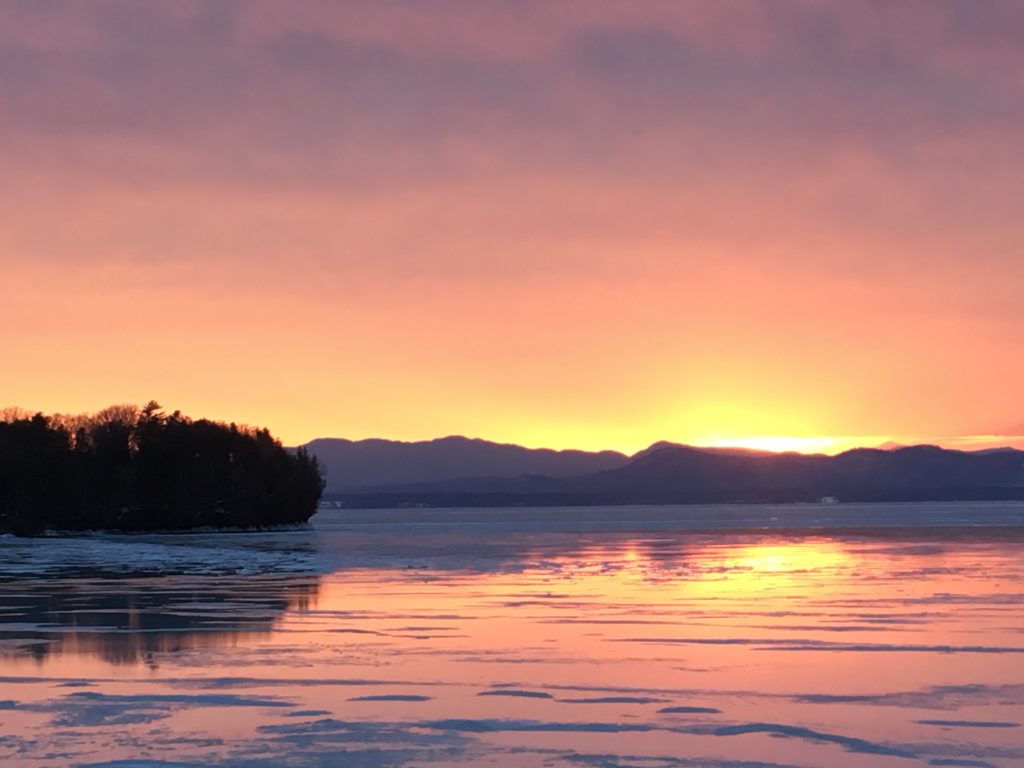As I look out my office window, the sun breaks the boundaries of today’s clouds. Immediately, the snowfields glow, almost blinding in their sweep down to the inky blue expanse of Lake Champlain, whose western shoreline is anchored by the Adirondacks. This view never gets old. Beauty never does.
To live in this pandemic, natural beauty has become a necessary balm, a daily tonic for me. As for most of us, with varying iterations, the shape of my life has been reduced, slightly expanded, then reduced again with each new wave of Covid-19. The relative constant has been navigating the small triangle of: home, office, and grocery store. When the triangle breaks for errands, takeout, the rare out-of-state trip when infection rates have dropped, spaciousness seeps in, as does the remembrance of life before Covid-19. The old normal. The time, like all time, that will never return.
As we approach the 2nd anniversary of the pandemic, I am struck by how much stress and grief people have had to navigate in universal and unique ways. These include: social isolation and fear of illness or death, deaths of loved ones and pets, shifts in employment or demands thereof; reduced or no access to healthcare, housing, and food security; confusion related to public health management, and lack of access to regular activities or travel that bring joy and renewal. All of these circumstances are continuing to unfold against a backdrop of global social, political, and environmental challenges that create their own clouds of existential angst.
Throughout it all, what humbles me most is human resiliency. And not the dressed up kind that one reads about in psychological theory or the latest self-help book, but the gritty, necessary meeting-life-another-day kind. No matter what. What humbles me is the way I witness people hanging on, leaning in, being vulnerable, sharing what’s real, and taking care of themselves and those they love. What humbles me is the courage it takes to show up messy, curious, sad or grieving, and still find moments of laughter, joy, and ways to love. This kind of human resiliency lives below or beyond the labels of identity, life circumstances, social structures, political affiliations or lack thereof. It’s messy, heartfelt, courageous, and tender. And I have the privilege of witnessing its emergence and growth all the time.
One of the things I have learned personally and professionally is that the worst things in life are not poverty, illness, trauma, hunger, or even the death of loved ones, as devastating as any or all of these experiences are or can be. It’s being alone with our suffering, whatever its origins. It’s living in a cage of chronic silence and isolation. Feeling and believing that if people only knew how you felt, or what happened to you, or some mistake that you made, you would be exiled off the planet and everyone would know your individual brand of unworthiness and shame.
While the hiding, the silence, and related isolation create the worst suffering, connection heals. Authentic connection to ourselves, others, and nature make life not only bearable, but meaningful. In these ways, resilience is born and nurtured. Every day. No matter what.


